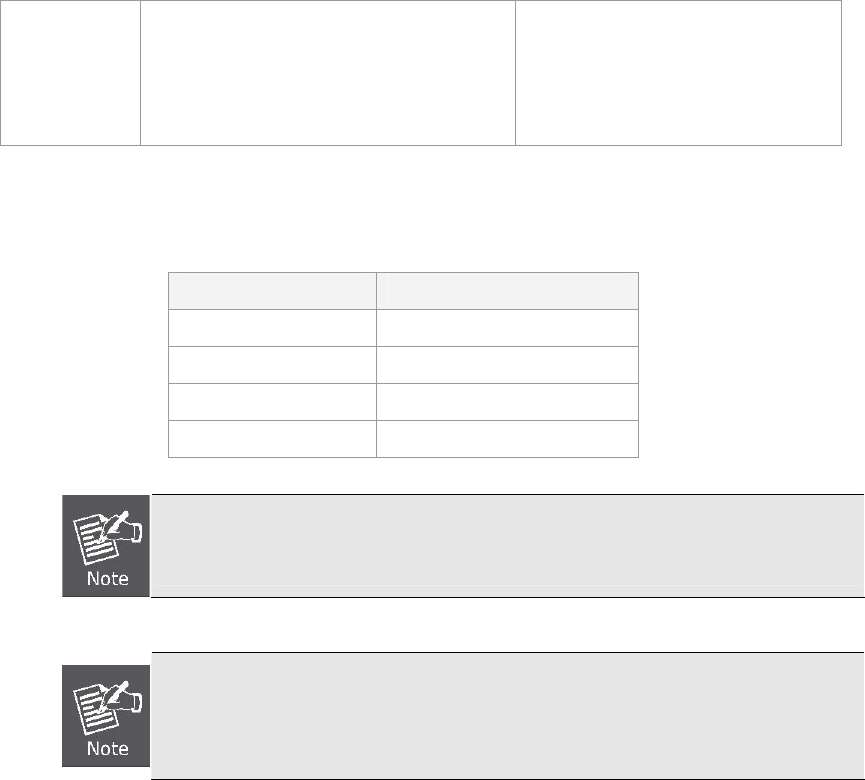
User’s Manual of FGSW-2620VM / FGSW-2620PVM
78
Port Cost
A value used by STP to evaluate paths –
STP calculates path costs and selects the
path with the minimum cost as the active
path.
200,000-100Mbps Fast Ethernet ports
20,000-1000Mbps Gigabit Ethernet
ports
0 - Auto
Default Spanning-Tree Configuration
Feature Default Value
Enable state STP disabled for all ports
Port priority 128
Port cost 0
Bridge Priority 32,768
The Hello Time cannot be longer than the Max. Age. Otherwise, a configuration error will
occur.
Observe the following formulas when setting the above parameters:
Max. Age _ 2 x (Forward Delay - 1 second)
Max. Age _ 2 x (Hello Time + 1 second)
4.5.3 Illustration of STP
A simple illustration of three switches connected in a loop is depicted in the below diagram. In this example, you can
anticipate some major network problems if the STP assistance is not applied.
If switch A broadcasts a packet to switch B, switch B will broadcast it to switch C, and switch C will broadcast it to back to
switch A and so on. The broadcast packet will be passed indefinitely in a loop, potentially causing a network failure. In this
example, STP breaks the loop by blocking the connection between switch B and C. The decision to block a particular
connection is based on the STP calculation of the most current Bridge and Port settings.
Now, if switch A broadcasts a packet to switch C, then switch C will drop the packet at port 2 and the broadcast will end
there. Setting-up STP using values other than the defaults, can be complex. Therefore, you are advised to keep the default
factory settings and STP will automatically assign root bridges/ports and block loop connections. Influencing STP to choose
a particular switch as the root bridge using the Priority setting, or influencing STP to choose a particular port to block using
the Port Priority and Port Cost settings is, however, relatively straight forward.


















